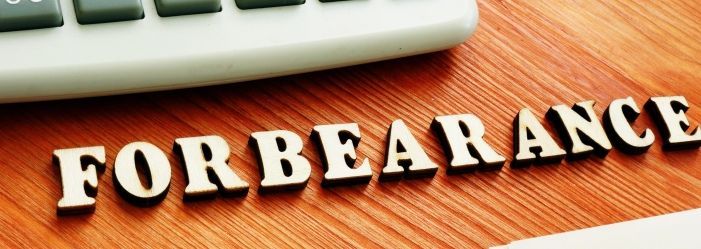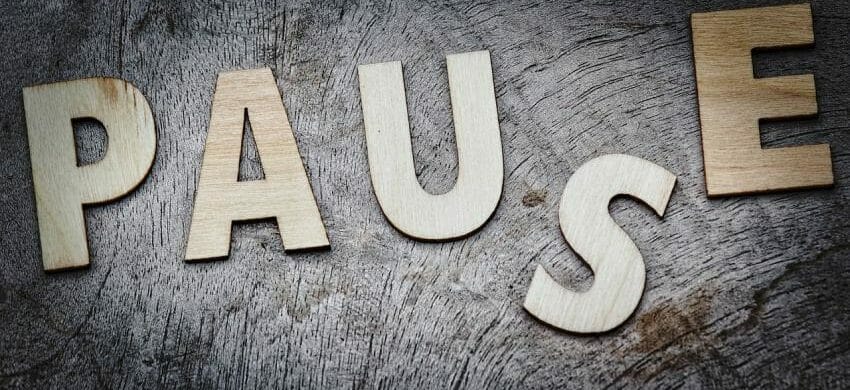Last Updated: March 29, 2024
Options for Paused or Reduced Payments

Disclaimer: We are not qualified legal or tax professionals and are not giving advice. Always speak with a qualified professional before making any legal or financial decisions.
In the face of financial hardship, finding a way to manage loan obligations without damaging your credit score or risking asset seizure is crucial. Forbearance offers a temporary reprieve, allowing borrowers to pause or reduce payments during difficult times.
This guide dives into the essentials of forbearance, including its workings, the situations that qualify for it, and its various forms across common types of loans like mortgages and student loans.
Whether you're dealing with unemployment, illness, or the aftermath of a natural disaster, understanding forbearance could be the key to navigating financial challenges without compromising your future.
If you're ready to talk now, skip the article and click here for a free consultation with our debt specialist.
Types of Forbearance
Forbearance is available for several common types of loans, with some differences in how it works for each.
- Mortgage Forbearance - Allows for a temporary reduction or suspension of mortgage payments. Interest may still accrue.
- Student Loan Forbearance - Pauses payments on federal student loans. Typically no interest accrues.
- Medical Debt Forbearance - Postpones payments on medical bills. Providers may waive interest.
- Credit Card Forbearance - Issuing banks can reduce minimum payments or interest rates for some time.
Qualifying for Forbearance
Eligibility terms depend on the lender, but common reasons to qualify for approved forbearance include:
- Financial hardship due to job loss, reduced wages
- Temporary disability or illness
- National emergencies like COVID-19 or natural disasters
- Death of primary household earner/co-signer
Documenting income changes, medical problems, or emergency impacts is typically required.
How do you ask for forbearance and are there reasons not to want to ask for forbearance?
Set Up a Table of Lenders
You’ll want to have the following information listed on a spreadsheet:
- Name of Lender
- Phone number/email
- Account number
- Total amount owed
- Minimum or monthly payment
- Payment history
- Interest rate
- Number of years as a customer
- Call date/email date
- Representative name and id number
- Any Comments
Gather Your Documents
While you are making your list, take the time to gather any documentation you have for each loan. This might be original or current contracts, mortgage documents, etc. You don’t know what you may need and it will make filling out your contact sheet easier.
Prioritize Lenders
Look at the list and decide which companies to approach first. Mortgage companies, student loans, utility companies, and credit cards may be more willing to work with you. Consider that each lender will offer reprieves from decreased or waived interest rates, payment deferrals, and waived or decreased late fees.
Create a List of Questions
Before you call or email, come up with a list of questions and ask the same list to all of the creditors. You can compare the answers and look for the best terms.
- What criteria do you use to grant forbearance?
- What type of forbearance do you offer?
- Waiving of late fees or returned check fees
- Waiving of or reduction of interest charges for a set period
- Temporary increase on credit card limits
- Reduced minimum payment amount
- Postponing monthly payments in full or in part
- How long will the forbearance period last?
- What happens if I can’t pay after the forbearance ends?
- During forbearance, will I be charged
- Interest
- Late fees
- Other fees
- What happens after forbearance ends?
- Lump sum payment
- Higher monthly payment
- Extends life of loan
- If for a mortgage, how does forbearance affect escrow?
- How is forbearance reported to collection agencies?
- Will the account state be reported as “current” (paid as agreed)?
Create a Script
Most people hate talking to strangers on the phone. Avoid the awkwardness by creating a script. You might try something like:
“Hello, My name is John Doe and I have been a customer of yours since (date). I am having some financial issues because of (fill in reason) and I am having trouble paying my bills. I would like to talk to you about what options you have for someone in my situation.”
Remember to ask the person for help or suggestions. Please don’t get angry or threaten them. But remember to get the terms in writing!
If you don’t agree, call them in three days. If you still hear nothing, keep up attempting contact. Write down each attempt!
Follow the Agreements
Once you obtain a forbearance, follow the agreement to the letter. This is an opportunity to get back on your feet and by working with the lender, you will hopefully make it out of your financial situation without too much damage to your credit.
What Happens After Forbearance Ends?
Once the forbearance period is over, the borrower is usually responsible for making up the delinquent payments. The lender often works with the borrower to devise a plan to catch up on the debt.
Depending on the terms negotiated with the lender, the borrower may owe:
- Interest accrued during the forbearance period
- Possible late fees
COVID-19 mortgage forbearance through federally backed loans does have some specific rules. Homeowners cannot be required to repay missed payments in a lump sum once forbearance ends. However, this may not apply to all types of mortgages and lenders.
In terms of credit reporting, lenders are required to report mortgage accounts in forbearance as "current" to credit bureaus. So forbearance will not negatively impact your credit score.
Other Options Available
If you haven’t checked out the CARES Act, please do. You may be able to qualify for mortgage relief and federal student loan relief. In addition, it provides help for small businesses and even state, local, and tribal governments. There are provisions to put evictions on hold, waive interest on student loans, and more.
Your state may have some type of relief act. Google (your state) debt relief government. Because there are so many scams out there, make certain you are on a reliable website!
Talk to your bank to see if they have any loan programs available that might help your situation.
The US Department of Housing and Urban Development offers a page that lists many COVID-related resources. The National Association of Realtors also offers information on mortgage relief.
Should you ask for forbearance? Frankly, you may as well. The worst is the creditor can say no. As long as you understand the terms and follow the agreement, forbearance can help you to survive.
If you are to the financial point where nothing will really make any difference, don’t despair. There is help out there!
Alternatives to Forbearance
While useful in many cases, forbearance has downsides like interest accumulation or repayment burdens.
Alternatives to explore first:
- Loan Modification - Permanently restructures loan terms
- Refinancing - Gets new loan to pay off old one
- Payment Plan - Smaller installments over a longer time
- Debt Consolidation - Combines debts into new single payment
FAQs
Conclusion
Forbearance can provide critical temporary relief when facing financial hardship. By communicating openly with your lenders, understanding all terms of an agreement, and having a plan to repay missed payments, forbearance allows you to weather challenging times without damaging your credit or facing default.
Key programs like mortgage forbearance under the CARES Act have helped millions manage difficulties in the wake of COVID-19. As you assess your options, make sure to consider the newest relief programs, know what happens when forbearance periods end, and get answers to all your questions upfront.
Managing debt obligations in hard times can feel overwhelming, but being proactive, informed, and asking for help can keep your finances stable until you get back on track.
Pacific Debt, Inc.
If you’d like more information on debt settlement or have more than $10,000 in credit card debt that you can’t repay, contact Pacific Debt, Inc. We may be able to help you become debt-free in 2-4 years.
If you have more questions, contact one of our debt specialists today for a free consultation.
*Disclaimer: Pacific Debt Relief explicitly states that it is not a credit repair organization, and its program does not aim to improve individuals' credit scores. The information provided here is intended solely for educational purposes, aiding consumers in making informed decisions regarding credit and debt matters. The content does not constitute legal or financial advice. Pacific Debt Relief strongly advises individuals to seek the counsel of qualified professionals before undertaking any legal or financial actions.
✔ Accredited by Better Business Bureau with BBB A+ rating (4.93 rating and 1678 reviews)
✔ US News and World Reports and Bankrate ranked Pacific Debt Relief as one of “The Best Debt Relief Companies of 2024”
✔ 6.9 star rating by BestCompany.com (over 2379 client reviews)
✔ 4.8 star rating by TrustPilot based (over 1613 verified consumer reviews)
✔ ConsumerAffairs.com Accredited (over 544 verified reviews with an average rating of 5 stars)
✔ A Top 10 Rated Compan by TopTenReviews.com , ConsumersAdvocate.com and Top10debtconsolidation.com
✔ 4.6 star rating by Google (229 client reviews)
✔ 100% rating by SuperMoney (9 client reviews)
Reduce Your Credit Card Debt By Up to Half

BBB Reviews | 4.9/5.0 Rating









 Do Not Sell My Personal Information
Do Not Sell My Personal Information